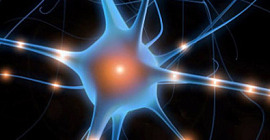A new study found that some children correctly diagnosed with autism spectrum disorders (ASD) at an early age may lose symptoms as they grow older. Further research may help scientists understand this change and point the way to more effective interventions.
ASD includes several related brain disorders, with symptoms ranging from mild to severe. People with ASD generally have trouble with social interactions and communication. ASD affects about 1 in every 88 children.
Optimal outcome—a term used when symptoms are lost later in life—has been documented in previous ASD studies. wever, questions remained about whether the symptoms disappeared or the original diagnosis was wrong.

A research team led by Dr. Deborah Fein at the University of Connecticut, Storrs, sought to investigate whether optimal outcome could be seen in children who’d had a confirmed ASD diagnosis before age 5. Optimal outcome participants had to be currently enrolled in regular education classrooms and have a documented report of their earlier diagnosis from a physician or psychologist specializing in autism. To confirm this assessment, the reports were edited to remove all information except the descriptions of behavior. They were then reviewed by an ASD diagnostic expert.
Three groups participated, with 34 children in the optimal outcome group. They were matched by age, sex and nonverbal IQ to 44 children with high-functioning ASD and 34 typically developing peers. The participants ranged from 8 to 21 years old.
Get The Latest By Email
The optimal outcome group appeared to have somewhat milder social problems at an early age than the high-functioning ASD group. However, both had similar communication and repetitive behavior symptoms.
To evaluate their current status, the researchers used a standard set of cognitive and observational tests as well as parent questionnaires. This assessment found that the optimal outcome children had no apparent deficits in language, face recognition, communication or social interaction.
The researchers now plan more in-depth comparisons of these children, including structural and functional brain imaging studies. They hope to better understand which children with ASD might experience an optimal outcome and why.
All children with ASD are capable of making progress with intensive therapy, but with our current state of knowledge most do not achieve the kind of optimal outcome that we are studying,” Fein says. Our hope is that further research will help us better understand the mechanisms of change so that each child can have the best possible life.










